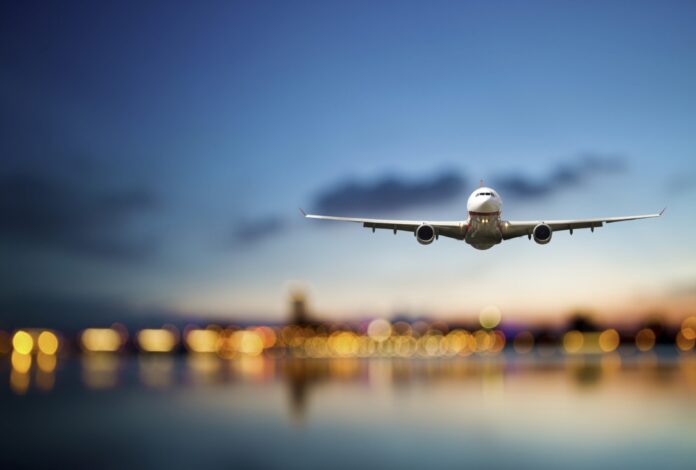In conversation with the media, Senator Saleem Mandviwala refuted the claim made by former Aviation Minister Ghulam Sarwar Khan regarding the issuance of fake licences to pilots. “I reiterate that no fake pilot exists,” stated Mandviwala. The comments were made following a meeting of the Senate Standing Committee on Aviation’s Sub-Committee on May 24, where the Sub-Committee decided to examine the suspended pilots’ cases.
The Sub-Committee convened to scrutinise the cases of 80 pilots whose licences were either revoked or suspended due to allegations of malpractice during pilot exams. Senator Saleem Mandviwalla expressed the committee’s intention to expedite the resolution of the matter and prevent further embarrassment for the country.
In attendance were Senator Muhammad Sabir Shah, Sr. Joint Secretary Aviation Division Mir Hassan Naqvi, Director General (DG) Civil Aviation Authority (CAA) Khaqan Murtaza, Director Flight Operations Pakistan International Airlines (PIA) Asif Gillani, Chief Human Resource Officer PIA Athar Hussain, and other concerned officers.
The CAA’s legal counsel informed that an interim challan has been submitted by the Federal Investigation Authority against the pilots named in the First Information Report (FIR). The Committee instructed the CAA to reinstate pilots not implicated in the FIR through a Review Board and upon withdrawal of their cases from the courts. The Sub-Committee deferred further deliberations on the matter until their next meeting.
What is the fake licence case in question?
In 2020, Pakistan’s then Aviation Minister Ghulam Sarwar Khan revealed that investigations had uncovered more than 260 of the country’s 860 active pilots held fake licences or had cheated on their exams. As a result, Pakistan International Airlines (PIA) grounded 150 pilots over concerns about the validity of their licences. The International Air Transport Association (IATA) stated that the irregularities discovered in pilot licences at the airline represented a “serious lapse” in safety controls.
This issue was revealed as part of a preliminary report into the crash of PIA flight PK 8303 en route to Karachi from Lahore, which resulted in the deaths of 97 individuals.
Where does the CAA fit into this?
Profit contacted the CAA to comprehend the events between Sarwar’s initial disclosure and the Sub-Committee’s meeting.
“Various forums have clarified that no fake licences existed. The Aviation Minister expounded on the examination system’s exploitation by delinquent pilots. During 2018-19 investigations, CAA Pakistan identified anomalies in pilots’ examination records. Some pilots employed unfair means during examinations. Consequently, their licences were suspended or annulled per the law on the Federal Government’s instructions after scrutiny,” the response stated.
“CAA Pakistan tackled organisational and implementation challenges to prevent system misuse. Rigorous entry control procedures were implemented in the PEL Directorate, and exams were conducted only during working days and hours. The Examination branch was segregated from the Licensing branch, and 24/7 electronic surveillance systems were installed. Computer systems were secured, and computerised results were generated,” it further elaborated.
“To fortify the licensing system, Pakistan outsourced pilot licence examinations to UKCAAi. This proved fruitful and assisted CAA in adopting further improvements. Disciplinary actions were taken against candidates and invigilators found guilty of misuse. Each examination-related activity was documented and preserved for traceability per international standards. After system improvements, an international audit declared Pakistan’s Licensing system secure. The ICAO Audit results showed Pakistan’s licensing compatible with the best world practices,” it continued.
At the meeting, Murtaza reported malpractice in pilot exams involving CAA officials and retired pilots. Concerns emerged regarding 262 pilots’ licences, causing international complications.
Following an investigation, 180 pilots were exonerated, while 82 faced ongoing issues. Per the cabinet’s directive, 50 licences were annulled and 32 individuals were suspended for six months.
Murtaza stated that pilots with annulled licences lacked security clearance, unlike the pilot in question. Additionally, 33 pilots’ licences were deemed dubious. Of these, cases were registered against 27, while no cases were registered against the remaining six. A review board was established for 30 days and operated for two years, allowing pilots to appeal.
Where does PIA fit into this?
Sarwar’s investigation precipitated the European Union Aviation Safety Agency (EASA) imposing a ban on the carrier, with the Federal Aviation Administration (FAA) in the US following suit with a similar restriction.
At the Senate Committee, PIA officials disclosed that 20 of the 80 pilots were affiliated with PIA and that an acute shortage of pilots had diminished PIA operations by 20%, resulting in a loss of approximately Rs 700 crore.
“It was lamentable that EASA banned all Pakistani origin airlines and the FAA downgraded Pakistan aviation’s category,” stated Abdullah Khan, Head of Marketing & Corporate Communications at PIA. “This caused a tremendous loss to the national flag carrier due to the revocation of TCO authorisation by UK and European authorities. The UK and Europe collectively contributed more than 37% of PIA’s total revenues,” Khan continued.





Great post….